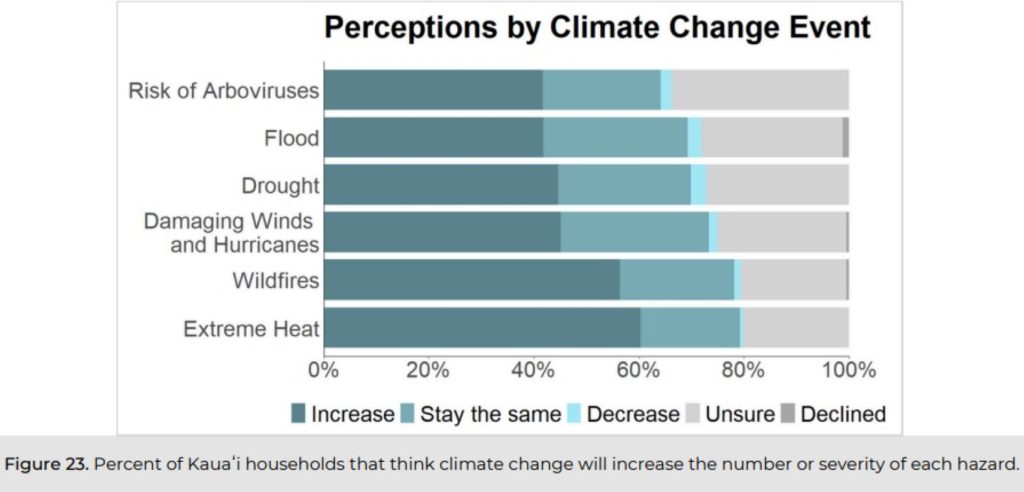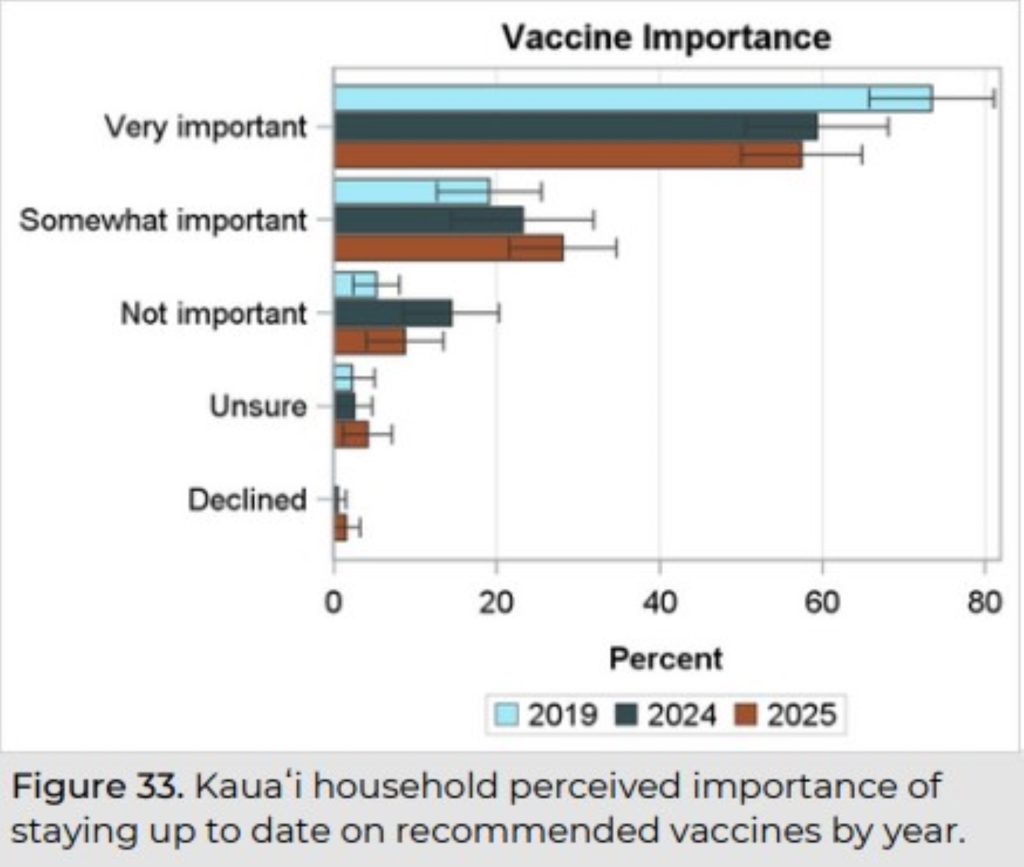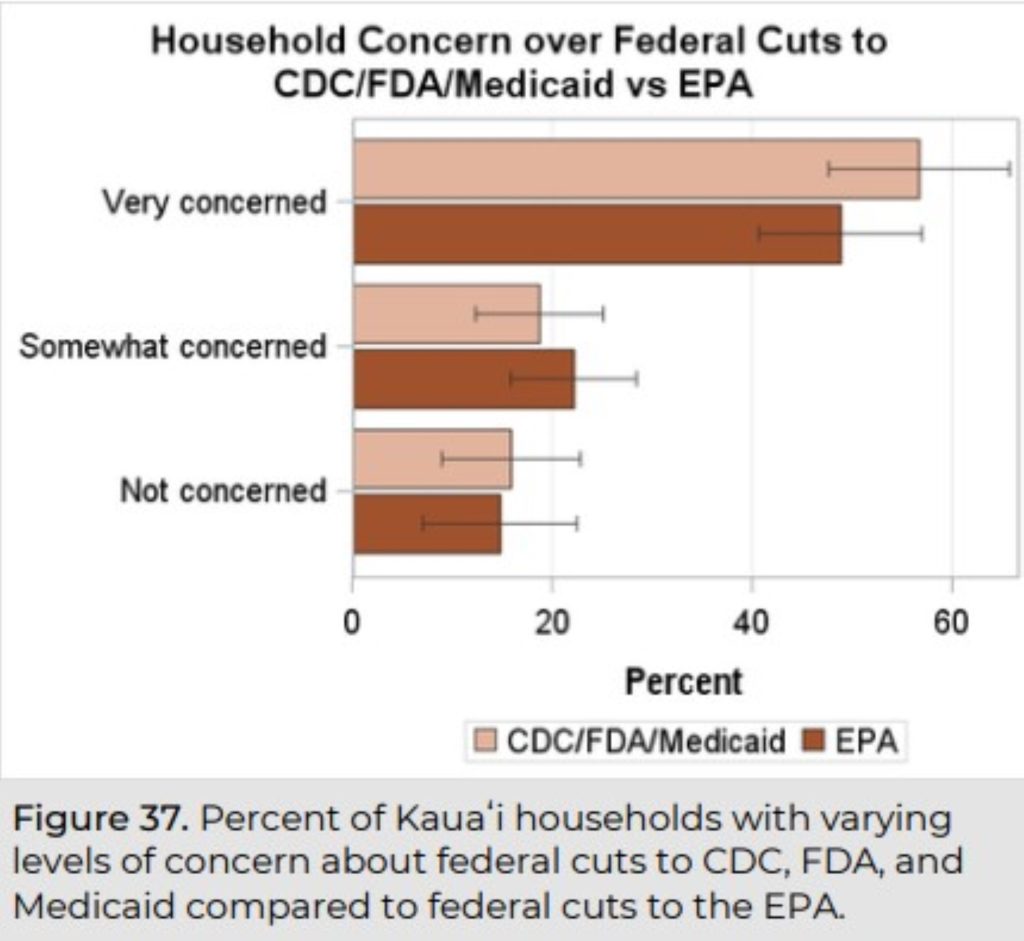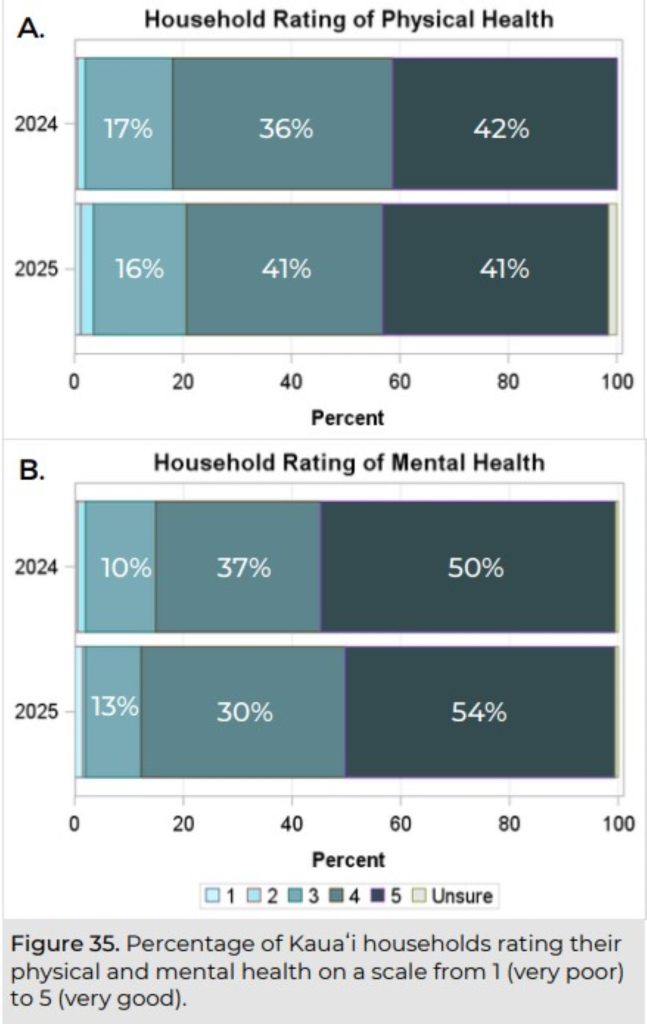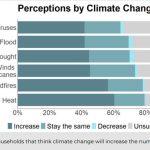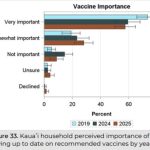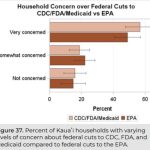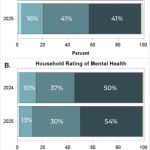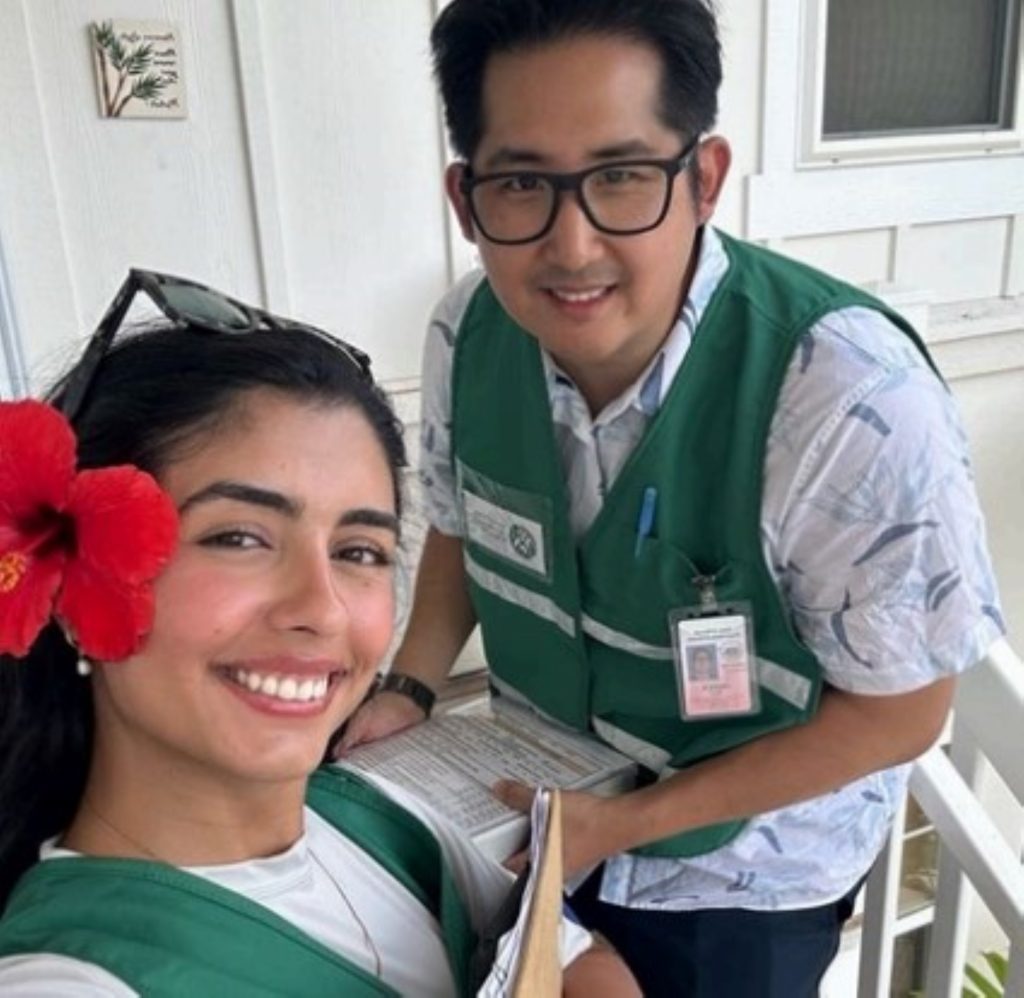Kauaʻi health office releases report on 2025 public health, emergency prep survey
Kauaʻi District Health Office — a branch of Hawaiʻi Department of Health — recently released its report on the 2025 Community Assessment for Public Health Emergency Response, or CASPER, survey.

Teams conducted door-to-door surveys from June 23-27 at randomly selected households around Kaua’i, completing a total of 186 interviews throughout the course of the 5 days and collecting valuable data about residents’ health, well-being and emergency preparedness.
“This annual survey helps [Kauaʻi District Health Office] and our partners do a better job of serving our community,” said Kauaʻi District Health Officer Dr. Janet Berreman in a release about the survey’s findings and report. “It informs our program planning, our outreach and education and our priorities.”
The CASPER survey is a validated, needs assessment developed by the U.S. Centers for Disease Control and Prevention to rapidly obtain population-based estimates about the health and resource needs of a community pre- and post-disaster.
This is the eighth CASPER survey conducted since 2017 on Kauaʻi.
The 2025 survey asked Kauaʻi residents about their basic household demographics, emergency supplies, concerns about climate change impacts, infectious disease awareness and concerns as well as general health and well-being.

A few key findings include:
- 81% of Kauaʻi households are aware of the recommendation to maintain a 14-day supply of non-perishable food and water, but only 17% have the recommended 14-day supply on hand.
- 17% of Kauaʻi households have at least one member with electricity-dependent health needs. Of those households, only 45% have a backup power supply available in the event of a power outage.
- 67% of Kauaʻi households are very or somewhat concerned about the impacts of climate change in Hawaiʻi. Almost half of households (42%) discuss climate change at least once a month, with 5% discussing it daily, 17% weekly and 19% monthly.
- While most households expressed some level of concern and regular discussion about climate change, the majority (87%) have not experienced mental health impacts related to climate change.
- Most Kauaʻi households (71%) are very or somewhat concerned about federal cuts to the U.S. Environmental Protection Agency, including safe drinking water, clean air and environmental justice.
- Similarly, most Kauaʻi households (76%) are very or somewhat concerned about federal cuts to Centers for Disease Control and Prevention, U.S. Food and Drug Administration and Medicaid.
- More than a third (35%) of Kauaʻi households are very concerned or somewhat concerned about their ability to pay the next month’s rent or mortgage. A statistically signficant 15% increase was observed from 2024 to 2025, which aligns with data collected during the 2020 CASPER survey a few months into the COVID-19 pandemic.
- Among Kauaʻi homeowners, 5% reported loss of homeowners insurance coverage or inability to pay because of rising costs during the past year.
- While the majority of Kauaʻi households (57%) continue to think it is very important to stay up to date on recommended vaccines, a statistically significant 16% decline was observed from 2019 to 2025.
“The Kaua‘i CASPER survey report provides us with detailed point-in-time data of the circumstances facing Kaua‘i residents,” said Hawai‘i Senate President Ronald Kouchi, who represents Kaua‘i and Ni‘ihau, in the release.
Hawai‘i House Speaker Nadine Nakamura — who represents Hā‘ena, Wainiha, Hanalei, Princeville, Kīlauea, Anahola, Keālia, Kapa‘a, Kawaihau and a portion of Wailua — said it’s important work to ensure that public policy is grounded in the real experiences of Kaua‘i and all Hawai‘i residents.
“As a lifelong Kaua‘i resident, I know how important it is to ensure that our communities are resilient and prepared,” Nakamura said in the release. “Understanding the challenges our residents face is the first step to solving those challenges, whether that be access to emergency supplies or concerns about climate change and housing costs.”
Annual CASPER surveys have served as capacity building exercises for Kauaʻi District Health Office and partner agencies, as well as increased community awareness about agencies and services available around Kauaʻi.
Previous CASPER reports are available on the Kaua‘i District Health Office website.



